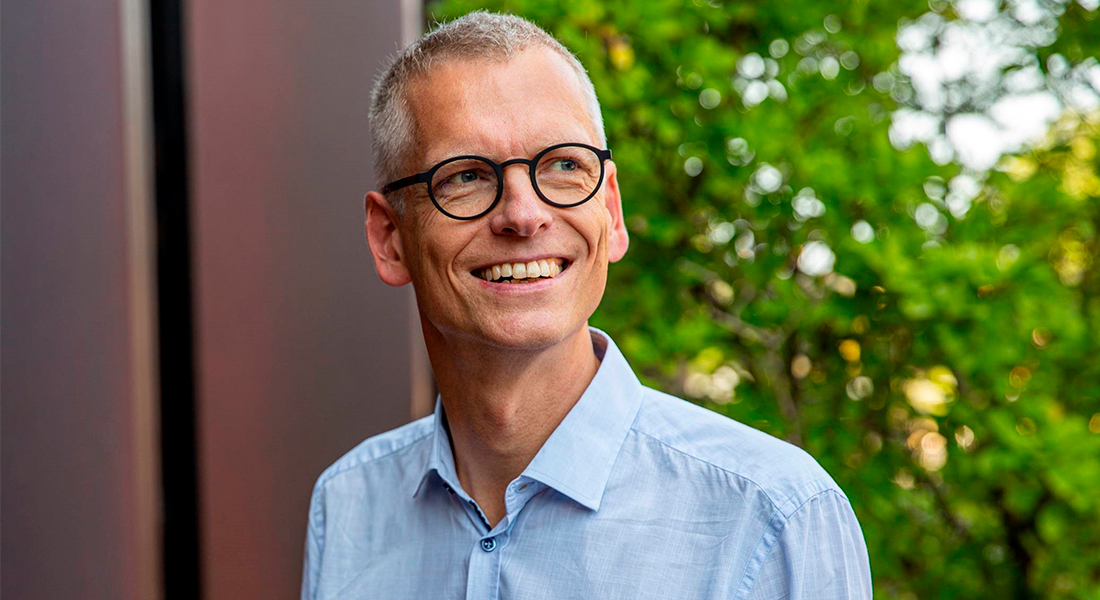Brain Research is Facing a New Era

The Department of Neuroscience at the University of Copenhagen has strengthened research and education in brain diseases with a new master's degree programme, placing the Department at the centre of brain research in Northern Europe. New technology and greater biological knowledge about the body's most complex organ have given us the prerequisites to understand and do more.
Diseases of the brain will command a stronger presence in the healthcare system of the future. Not because our brains get more sick, but because we grow older and have healthier bodies.
But there is surprisingly little we can do about these diseases – both when it comes to dementia diseases such as Alzheimer's and psychiatric disorders such as depression, anxiety, schizophrenia and bipolar disorder.
It is difficult to achieve the same progress in the treatment of brain diseases as in the treatment of other major diseases because the brain is so complex and because there are limits to what animal experiments can tell us about the human psyche.
But by now, new technology and greater biological knowledge have gradually given us the prerequisites to understand and do more than before.
Within brain research, it is believed that we now stand on the threshold of a new era, and with two new programmes and a number of research projects, the Department of Neuroscience at the University of Copenhagen will utilise the momentum and be at the forefront in the coming years, hopefully resulting in new understanding of and new treatments for brain diseases.
We must strengthen the work with brain diseases and the training of people who can conduct research into brain diseases.
Better Biological Understanding
‘In recent years, we have seen much better treatments, especially for cardiovascular diseases, but also for cancers. But the treatment for brain diseases is lagging behind. Some large pharmaceutical companies have even withdrawn from the area due to capsized projects. That is why we must increase our efforts at university level. We must strengthen the work on brain diseases and the training of people who can conduct research into brain diseases’, says Ulrik Gether.
The key to progress lies in a better biological understanding of what happens in the brain and how it works.
‘The brain is the most complex organ we have, and at the same time it is our least understood organ at almost all levels – from how our memory works to what happens in the brain of the patient with schizophrenia or the patient with dementia. Although there has been great progress within brain research in recent years, we acknowledge that the revolution still lies ahead of us’.
New Students to be Part of the Progress
Perhaps the breakthrough will come from some of the students who, after the summer holidays, started as first-year students at UCPH’s brand new master's degree programme in neuroscience. The new programme is supported by DKK 15 million from the Lundbeck Foundation.
‘I believe we are Facing a new era. We have new technological possibilities and new, improved methods to study both humans and animals. Good models with mice and rats are crucial, and there have been some breakthroughs in terms of how we can turn on and off different types of nerve cells and understand their function. We have far better microscopy and imaging methods and, at the same time, access to big data and artificial intelligence. These are huge areas that are currently included in our research’, says Ulrik Gether.
Good Environments for Brain Research
He is optimistic about the future, where it is the declared goal of the Department of Neuroscience to become the centre of brain research in Northern Europe.
‘We already have some fantastic environments in Denmark with high-quality brain research. By using new technology and discoveries from other research areas as building blocks, we can revolutionise brain research and, in the long term, better help people with dementia and psychiatric disorders. The seniors of the future will have healthier bodies – even if they worked working class jobs, but we need to get better at helping them if they suffer from brain diseases. A high quality of life requires a healthy brain!’
In addition to the new master's degree programme in neuroscience, the Department of Neuroscience has started a one-year master's programme in neurorehabilitation aimed at doctors, nurses, physiotherapists and others who work with rehabilitation of people who have had, for example, blood clots in the brain, spinal cord injuries and the like.
The master's programme can help to ensure high-quality Danish healthcare, where research and treatment go hand in hand.
This article was published in Danish in "Fremtidens Sundhedssektor by Partnermedier".
